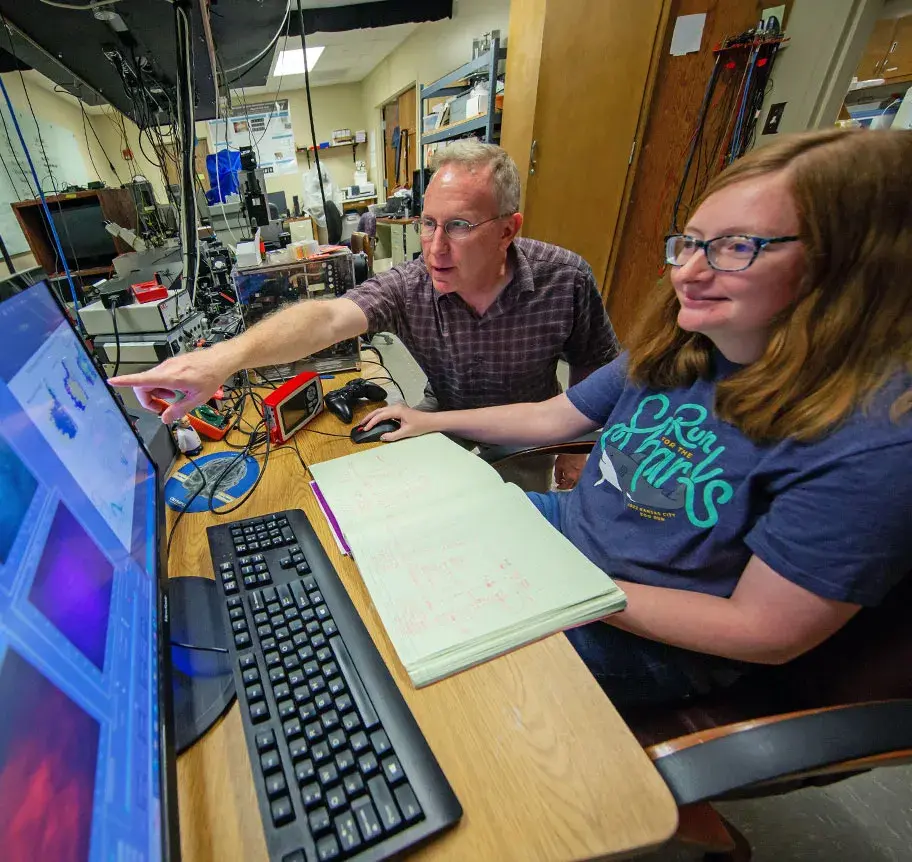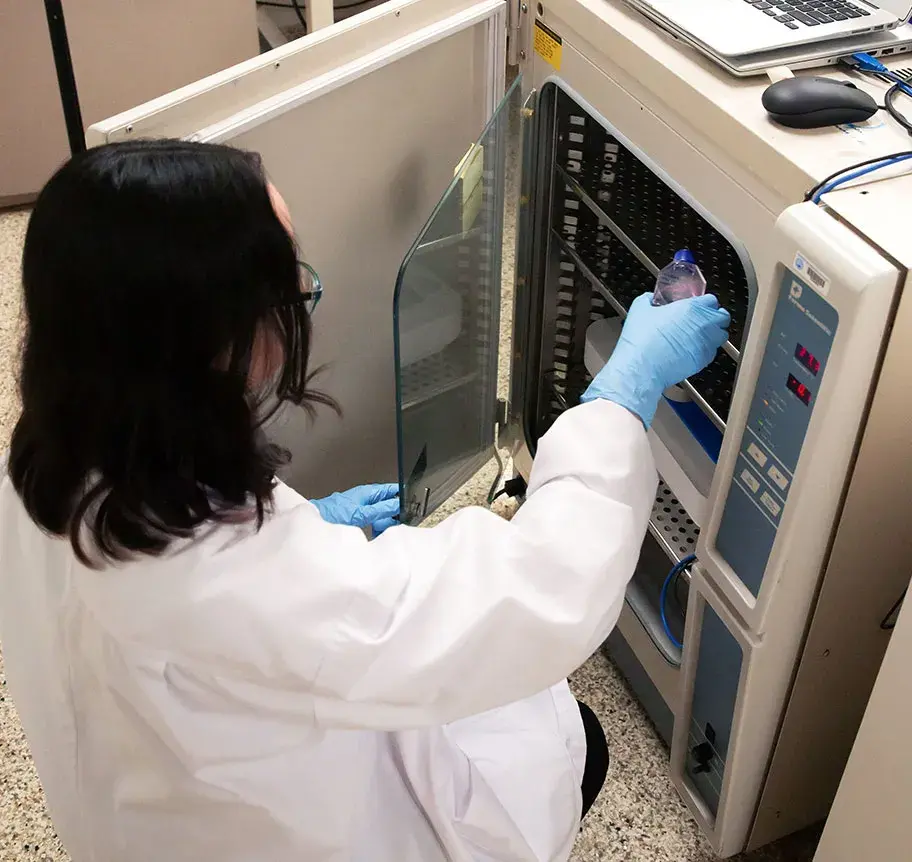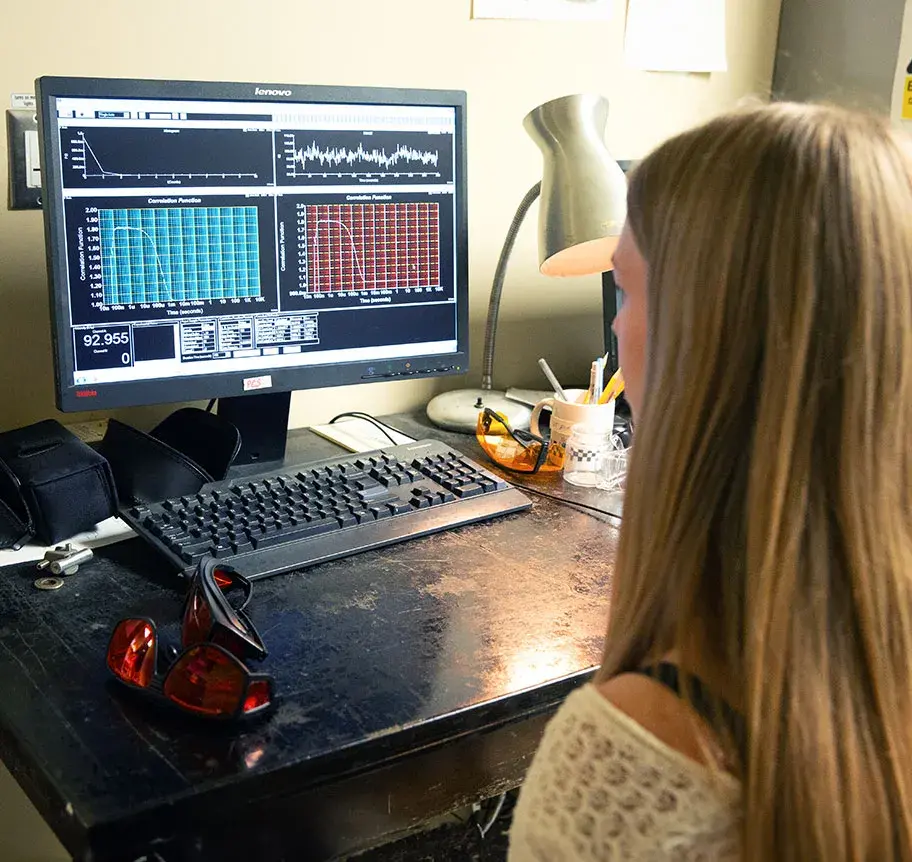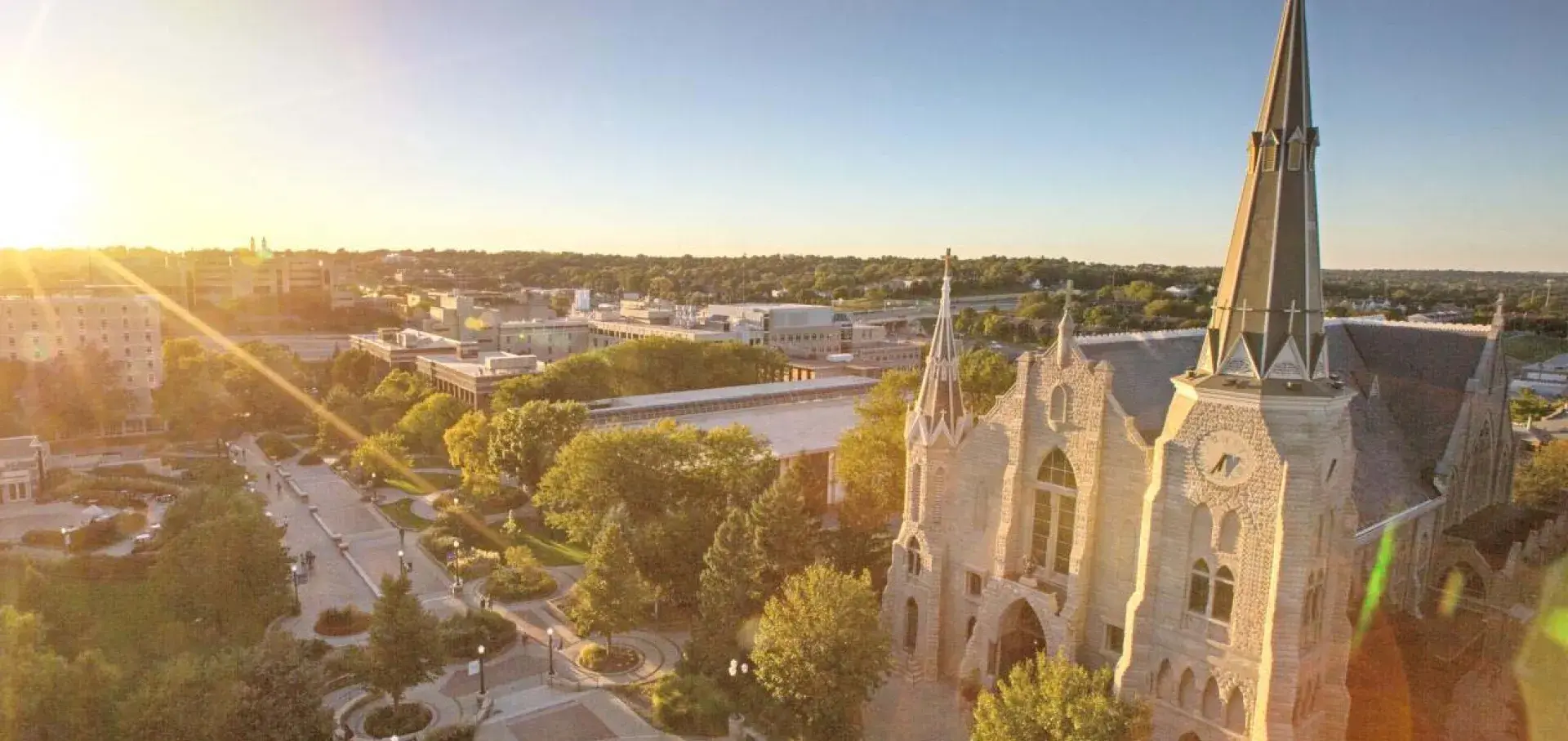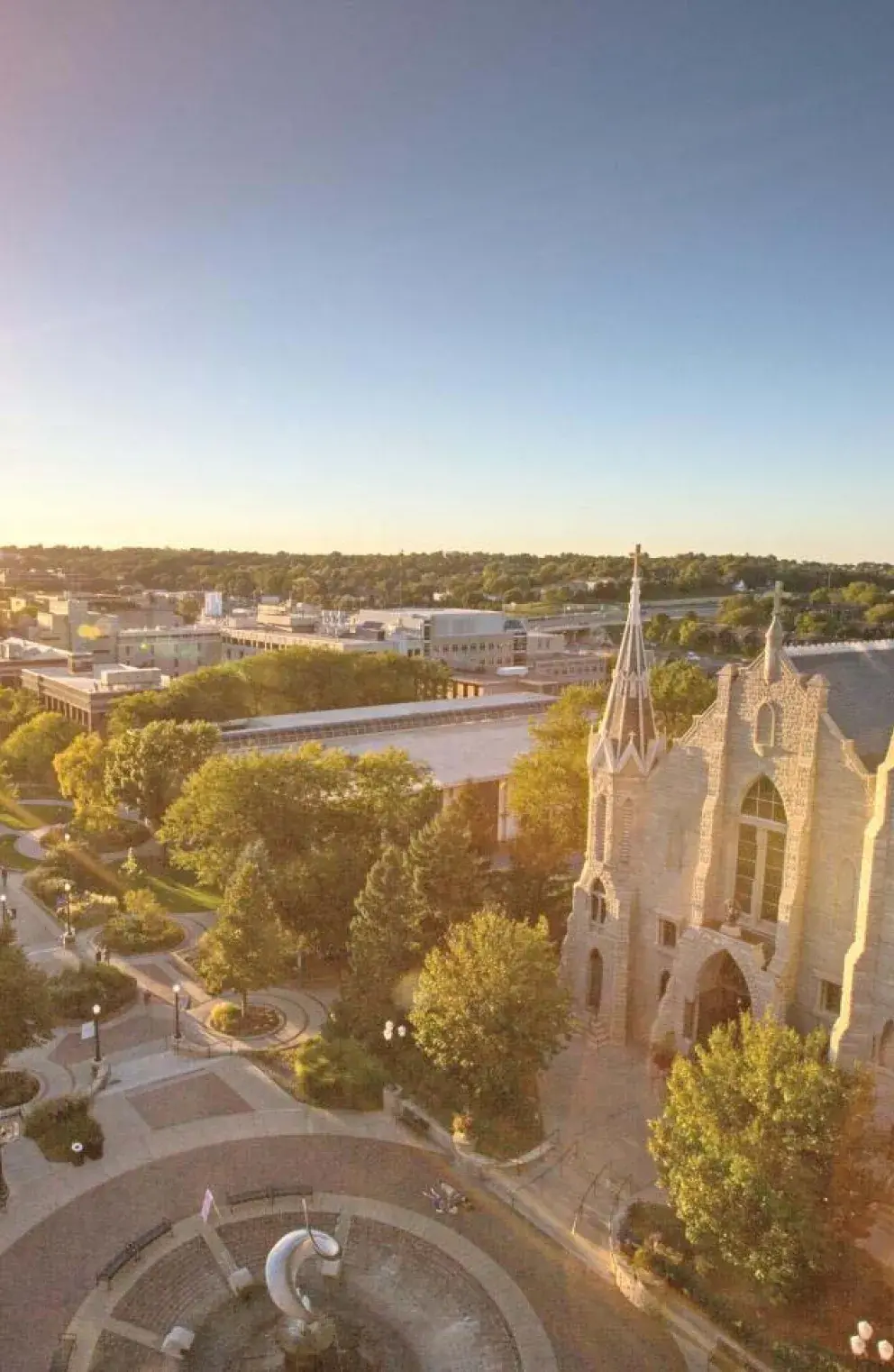
Medical Physics (Master of Science)
Gain a solid foundation in medical physics and learn how to apply your skills and training in a clinical setting through Creighton University’s Master of Science in Medical Physics. Coursework will prepare you for a career in medical and health physics, radiobiology, radiological physics and radiation dosimetry, nuclear physics and instrumentation, nuclear medicine or medical imaging. Through coursework grounded in medical imaging, radiation therapy, dosimetry, nuclear physics, and clinical rotations, this master’s program can serve as the starting point for pursuit of a doctoral degree.
Whether it’s preparing a treatment plan or researching the next generation of medical instruments, this program is perfect for students who aspire to make a positive impact in healthcare. This program will enhance your education in medical physics and help prepare you for the first part of the American Board of Radiology exam and participation in clinical residency programs.
Invest in yourself
An advanced degree is a big investment of your time and money. Creighton makes sure every credit hour is worth it, giving you hands-on research experience and individual attention that will prepare you for future academic and professional success. It may not take as long as you think — Creighton’s medical physics master's can be completed in roughly two and a half years by full-time students.
Teaching and research fellowships are available. Those selected receive a cash stipend and full remission of tuition during their fellowship. Graduate fellows must provide 20 hours per week of instruction and service in the undergraduate laboratories. A fellowship appointment may also be renewed for a second year upon recommendation of the physics department. Entering consideration for a teaching or research fellowship is as easy as applying to Creighton—you’re automatically considered for a teaching or research fellowship when you submit your application.
Plus, with physicists earning an average annual salary of $119,580 according to the Bureau of Labor Statistics, you could have significant earning potential once you earn your medical physics degree.
SOURCE: Bureau of Labor Statistics, Occupational Outlook Handbook
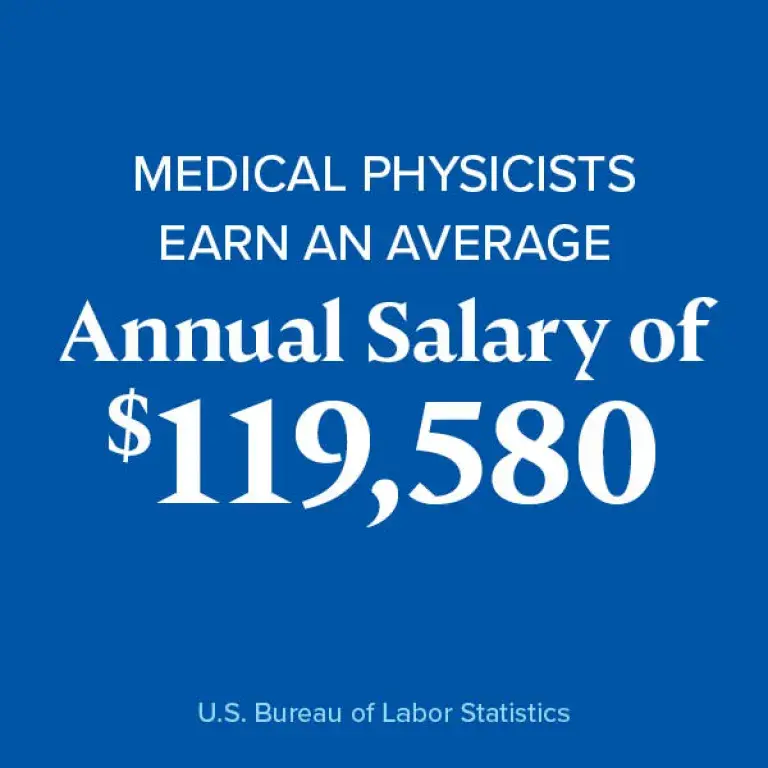
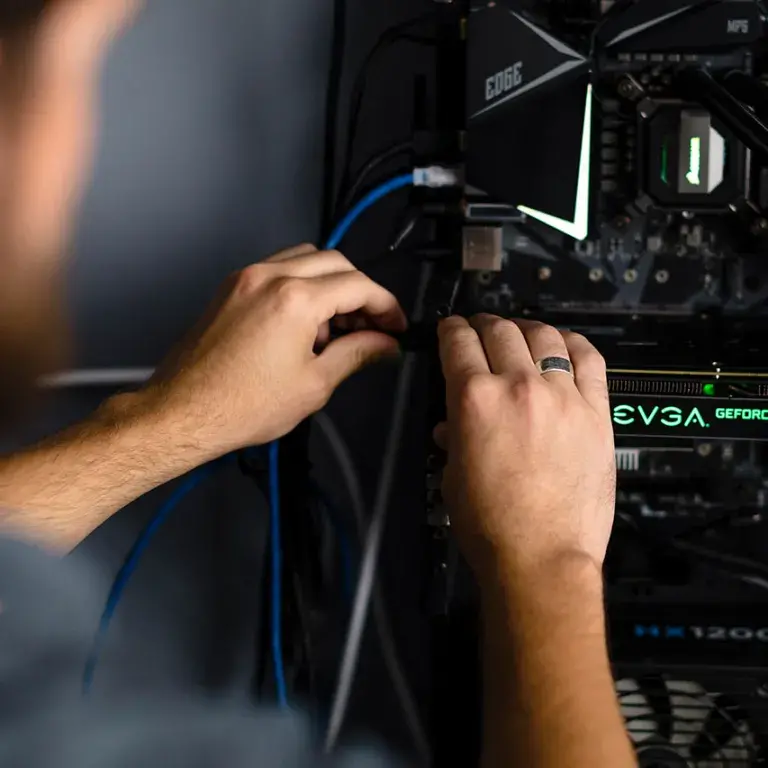
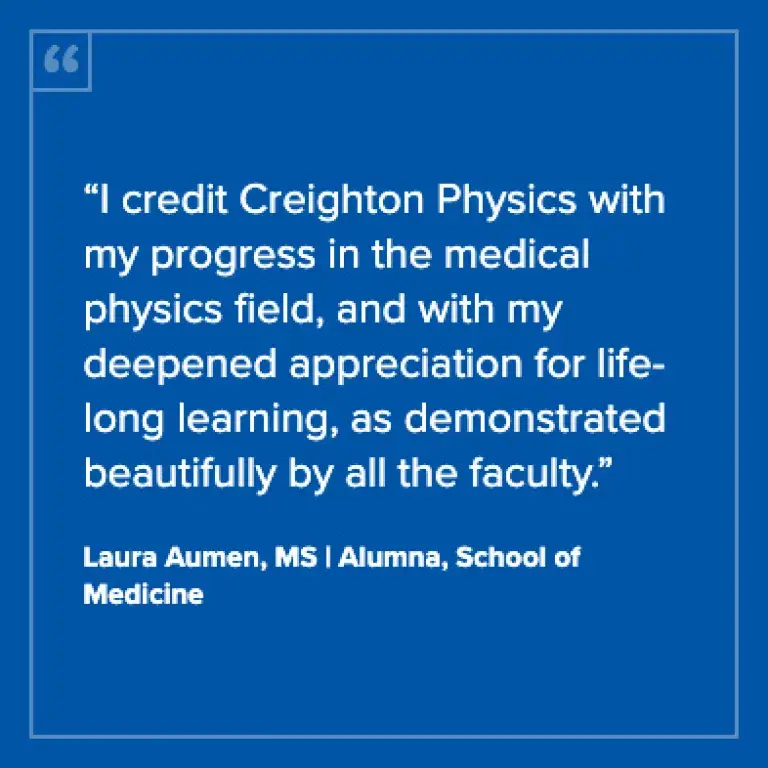
Program Details
Program Goals and Curriculum
The MS in Medical Physics is ideal for those pursuing a career as a medical physicist. Career paths include medical and health physics, radiobiology, radiological physics and radiation dosimetry, nuclear physics and instrumentation, nuclear medicine or medical imaging.
- Required Medical Physics Courses:
- Quantum Mechanics
- Mathematical Methods in Physics
- Nuclear Physics
- Nuclear Instruments and Methods
- Radiation Biophysics
- Physics of Medical Imaging I
- Physics of Medical Imaging II
- Physics of Radiation Therapy
- Dosimetry and Radiation Protection
- Medical Physics Seminar
- Directed Independent Research
- Medical Physics Rotation
- Master’s Thesis
- Comprehensive written examination covering basic physics, given in three parts:
- Classical Mechanics and Heat
- Electromagnetism, Optics, and Waves
- Modern Physics, Quantum Mechanics, and Relativity
Required courses may be waived, with permission of the program director, if they have already been completed upon entry to the program. However, students must complete a minimum of 30 credit hours at Creighton University. Students may also be encouraged to take additional coursework – especially in anatomy and physiology – to prepare for future clinical residency work.
Faculty
Faculty in the MS in Medical Physics program are experts in a variety of fields and have published a wide breadth of research. They are more than teachers, acting as advisors and mentors throughout your graduate school journey to help you reach your academic and personal goals.
Admission Requirements
To be considered for admission to the MS in Medical Physics program, applicants must:
- Complete an application and submit a $50 application fee
- Bachelor’s degree with a major in Physics (preferred), Engineering, or another science discipline. If the Bachelor’s degree is not in physics, students must have completed at least 18 credit hours of undergraduate-level physics, with at least 9 hours in upper division physics courses and a minimum 3.0 GPA. Appropriate undergraduate chemistry (at least 1 year), Biology (at least 1 year), Mathematics (two years, Calculus and Differential Equations), and computer science (proficiency in at least one programming language) preparation is also required.
- Provide official transcripts from all educational institutions attended. Read more about sending transcripts here
- Submit a personal statement (see application for specific requirements)
- Submit three letters of recommendation from persons other than friends or family members
- Provide a resume/CV
A personal interview may be requested in addition to the above requirements. The interview may be conducted in-person or virtually.
International students are welcomed into this program and F-1 visas will be supported upon admission.
International applicants must:
- Meet English language proficiency requirements
- Complete and submit a Certification of Available Finances Form through the Global Engagement Office if admitted
Tuition & Financial Aid
Tuition rates change in the fall of each year. Visit our financial aid site for more details.
Fellowships
Teaching and research fellowships are awarded each year. Graduate fellows receive full tuition remission and a cash stipend. Tuition remission is also extended to fellows in the summer sessions adjoining the fellowship year. Teaching and research fellows are required to provide the equivalent of 18 hours per week of service. Fellows must take a minimum of 8 credit hours per semester.
Financial Aid
To help make your graduate studies at Creighton University more affordable, we encourage you to file the FAFSA to apply for financial assistance. We also encourage you to apply for available graduate student scholarships and fellowships.
Still have questions? Email or call a friendly financial specialist at 402.280.2731 for any additional questions you may have.
Dates and Deadlines
The tables below detail the enrollment deadlines and starting dates of courses for the current academic year. If you have any questions about dates, deadlines, or application materials, please contact an admissions advisor for personalized assistance.
ON-CAMPUS
| START CLASSES IN | APPLY BY |
| August | July 15 |
| January | December 1 |
International students should apply three months before the application deadline. Fellowships are offered to qualified applicants as soon as the application is reviewed, so it is recommended that applications be completed ahead of the deadline (May 1 for August start, or September 1 for January start).

